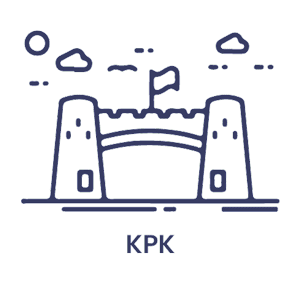TME Stakeholder Engagement Policy
Introduction
At TMS , we believe that schools are places where our students and their teachers experience a vital part of their lives and are made with the experience of people working constructively to reach important goals. Therefore, the places and experiences we create in our schools have the potential to deliver a positive impact on the communities they are part of, the people we serve, the people we invest in, and those who invest in us.
Our vision is to be the best provider of high-quality education – from early years’ provision to higher education – in Pakistan, and we measure this through the eyes of our stakeholders. We define our stakeholders as those who study in, work in, and use, our buildings, the communities around our schools, our teachers and our partners who collaborate with us to offer beyond-the-norm education.
The purpose of this policy is to formally document and outline our commitment and approach to comprehensive stakeholder engagement. To define this, we at TMS have developed a commitment statement which defines our stakeholder engagement agenda:
Statement of commitment
As educational professionals we are committed to:
- Engaging with our stakeholders to develop and maintain positive, productive relationships
- Ensuring all stakeholders are well-informed and have access to information about our activities
- Involving our stakeholders in identifying issues which can significantly impact on the work that we do
- Implementing initiatives that contribute to sustainable development and generate shared value
Aim of the Policy
To do this, we will:
- Foster an ethos and atmosphere where all parents feel welcome, valued and heard
- Provide information that is well-presented and easy to read
- Give parents enough notice to attend Parent Teacher Meetings and other events in school
- Seek parents’ views and act on them
- Identify and provide support and encouragement for families
- Help parents support their children’s learning at home and at school
- Work with parents in promoting positive behaviour at home and at school
- Provide a range of activities and resources to stimulate ‘lifelong learning’ for all
Our Objectives for Engaging our Stakeholders
As a responsible provider of quality education we are committed to:
-
- Collaborating with stakeholders to identify emerging needs/ interests/ concerns and develop solutions
- Ensuring that all our actions and activities meet our stakeholders’ needs
- Identifying material issues in a collaborative way to create value for our schools and our stakeholders
- Creating community support for our work
Fulfilling this Policy for Stakeholder Engagement
Our stakeholders are identified as the groups and individuals who can influence, or are impacted by, our activities, either directly or indirectly, and include communities and our employees.
Therefore, this Stakeholder Engagement Policy recognises that stakeholder involvement is multi-dimensional and that all stakeholders have a role to play in fulfilling our core priority of educational excellence.
Through this policy, our commitment is to engage openly and authentically with our stakeholders to develop co-operative and mutually supportive relationships.
To achieve this, we will:
- Conduct our business with integrity and fairness
- Identify our stakeholders and communicate in a relevant, inclusive, timely and responsive manner
- Build enduring community relationships that demonstrate mutual respect, proactive engagement, honesty and transparency
- Assess our social performance through direct consultation with our stakeholders
- Strive to out-perform our obligations
- Strive to provide mutually beneficial opportunities with stakeholders
- Acknowledge stakeholder engagement as a key responsibility for all employees and ensure its integration into our daily school operations
Values That Underpin Our Stakeholder Engagement
Our approach to stakeholder engagement is based on six values. Everything we do is bound by these values and we measure our teachers and management staff against them through our performance. Our values are:
- Stakeholder Service
Across all schools, our external and internal stakeholders’ expectations should drive our priorities. This can be explained as being proud to help and if something does not benefit our stakeholders, we question why we do it. - Innovation
Whatever a person’s role in school, we question assumptions, challenge the status quo and keep looking for better results. To do this we must draw from each person’s unique knowledge and experience. - Excellence
We aim to be consistently excellent, rather than occasionally brilliant. This means that we push ourselves constantly to improve and be truly the best. - Integrity
We act in ways that mean people trust us. We consider the consequences of our actions and deal directly with difficult situations. When we are faced with difficult decisions, we think about what our role models would do. - Respect
We are aware of our strengths and weaknesses, and value different backgrounds and perspectives. We have high expectations of each other and give people working in the organisation opportunities to shine. - Accountability
We take responsibility for your own success and that of everyone around us. This means that we seek out opportunities to work together to deliver great experiences for our stakeholders.
Our Stakeholder Engagement Process
Strategies for Success
This policy identifies strategies designed to support all stakeholders as partners so that they have the opportunity, as well as the skills, knowledge and tools, to engage with our core priorities for education.
- Strategy 1: School Climate
We must foster and sustain a positive, welcoming school climate in which all stakeholder perspectives are encouraged, valued and heard. - Strategy 2: Eliminating Barriers
Identify and remove barriers to stakeholder engagement that may prevent them from fully participating in our students’ learning. - Strategy 3: Tools and Support for Stakeholders
Helping stakeholders support student learning at home and at school. - Strategy 4: Stakeholder Outreach
Review and expand communication and outreach strategies to share information and strategies to support learning at home and stakeholder engagement in schools.
Stakeholder Engagement Action Plan
Fulfilling the school’s vision of stakeholder engagement requires commitment and action by all of our partners at every level. By far the most significant stakeholder we have is our parents.
- Foundations for Parent EngagementParents’ engagement matters. Parents care about their children and want to be involved:
- They want their children to succeed in school and are willing to help in as many ways as possible. Therefore, commitment to our students’ well-being is the driving force behind everything we do in school.
- Parents expect all of the stakeholders involved with TMS to share this commitment.
- While parents can find it challenging to play an active role in their children’s education, it is important to meet this challenge so that our students have the support they need to be successful in school and later in life.
- Partners in Education
-
- Partnerships take sustained and intentional efforts, commitment and action by all at every level in our schools.
- We should seek to identify and break down barriers to stakeholder involvement and proactively reach out to partners.
School Actions
- Establish and sustain a positive learning culture and welcoming climate where stakeholder input is welcomed, respected and valued
- Implement strategies to identify and remove barriers that limit engagement by students, parents and our stakeholders
- Actively explore and utilise opportunities to further engage stakeholders to support student achievement
- Review partnerships regularly and seek to expand upon these partnerships to reflect the diversity of our students, parents and the broader stakeholder community
- Inform students and parents about learning expectations and the student’s academic progress and make efforts to assist parents who are not proficient with English
- Actively encourage and support stakeholders to share their ideas for improving student achievement to help inform school development plans (see School Development Policy)
- Monitor school climate (e.g. through surveys, focus groups) to help identify barriers to involvement or issues that should be addressed to foster and support a safe and welcoming learning environment
- Review and establish self‐ assessment processes to determine the effectiveness of stakeholder engagement strategies
- To be accessible we will:
- Be available to stakeholders
- Provide comprehensive and up-to-date information about our schools
- Give a tour of schools to any potential stakeholders
- Help and encourage people to access the TMS website and social media platforms
- To benefit from constant communication we will:
- Write the information we send out to stakeholders in a clear way including symbols/ pictures to aid understanding
- Provide information via social media
- Use display boards to show what our students have been learning
- Use rewards, certificates, stickers and awards for attainment, attendance and good behaviour so that our students can share their success at home
- Ensure we give sufficient notice to stakeholders of events and functions in school
- Send out a parental questionnaire to seek the views of our parents
- Ensure that we have a “You said – we did” response to our Parental Questionnaire
- Provide regular opportunities for stakeholders to meet with teachers at school
- Involving Parents/ Stakeholders in School, we will:
- Hold open days at school to encourage parents and stakeholders to share and enjoy the students’ learning, work and life in school
- Strive to strengthen Parents’/ Stakeholders’ voices (e.g. parental questionnaires, endeavour to ask for constant partner feedback, recording stakeholder experiences at functions and events etc.)
- Sharing our outstanding practice, we will:
- Share the good practice of our stakeholder engagement experiences and successes






